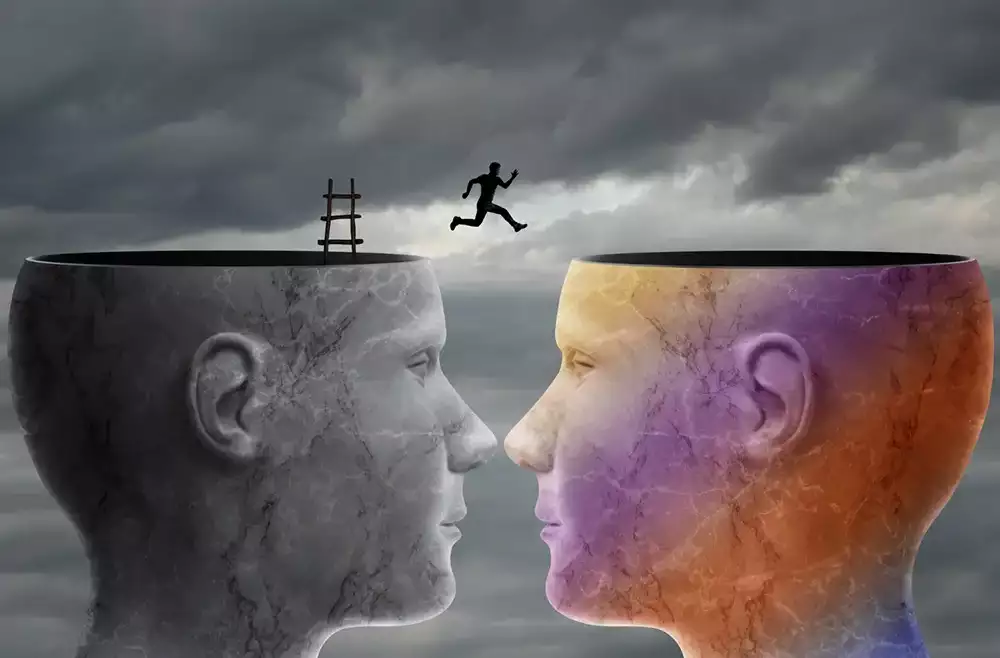Depression poses a significant threat to billions of people worldwide. This era has seen more suicides than the ones before. What could be the main reason behind these thoughts? There are plenty of reasons you can see if try to point out.
Although the exact cause of most mental illnesses is not known, research shows that that many of these conditions are caused by a combination of biological, psychological, and environmental factors. Some mental illnesses relate to abnormal functioning of nerve cell circuits or pathways that connect certain areas of the brain. Some of the biological factors that contribute are genetics, infections, brain injury, pre-natal damage, substance abuse etc.
There are plenty of mental health issues that have transformed the life of many individuals. This blog will show more about mental health conditions and what can be done to turn your ship towards the land of survival.
Why Seeking Treatment for Mental Health Matters
Mental health concerns, if left unaddressed, can give rise to more severe health complications. Here, we explore the dangers of neglecting mental health issues, highlighting the importance of seeking treatment.
Escalating Mental Health Challenges
Mental health disorders don’t tend to naturally dissipate over time. On the contrary, the longer they persist, the more formidable they become to manage and recover from. For instance, untreated anxiety may intensify into debilitating panic attacks, and the failure to confront trauma can ultimately lead to Post-Traumatic Stress Disorder (PTSD). Early intervention typically yields more favorable outcomes.
The Physical Consequences of Persistent Pain
The human mind copes with stress in diverse ways, and chronic mental illness can manifest in the form of unexplained physical symptoms like persistent aches, pains, and gastrointestinal discomfort, devoid of any apparent physical cause. Over time, these physical manifestations can pose a substantial threat to your overall physical well-being. Neglected, they can result in serious physical ailments, further complicating the recovery process from mental health issues.
The Symbiosis of Mental and Physical Wellness
Living with an untreated mental illness can be exceptionally challenging, often leading to the neglect of one’s physical health. Chronic stress, a common companion of mental illness, has been associated with an increased risk of severe physical ailments such as strokes, heart attacks, and obesity. Although the origins may lie in the brain, the repercussions are felt throughout the body.
Disruption to Daily Life
Mental illness can significantly disrupt your ability to navigate the rigors of daily life. It can impede your capacity to maintain stable employment and interact effectively with others. Severe depression, for instance, can render even the simplest tasks like getting out of bed or leaving the house for work a monumental challenge. Job loss may subsequently lead to housing instability. Conditions like anxiety or post-traumatic stress disorder can hinder communication skills, exacerbating financial woes and making it even more daunting to seek treatment. Disturbingly, an estimated quarter of homeless adults in shelters contend with a severe mental illness, as reported by NAMI (National Alliance on Mental Illness).
Involvement with the Criminal Justice System
It’s vital to emphasize that mental illness itself does not inherently drive violent behavior. However, it can significantly impede one’s ability to conform to societal norms, potentially resulting in behavior that is deemed inappropriate or misinterpreted. Disturbingly, nearly three-quarters of female inmates and half of male inmates grapple with severe mental illness.
The Tragic Consequences of Untreated Mental Illness: Suicide
Untreated mental illness clouds rational judgment, often leading individuals to believe that there’s no way out of their suffering. Alarmingly, it’s estimated that approximately 90 percent of suicides can be attributed to untreated mental health conditions. It is imperative to seek help and support, as treatment can offer a path towards recovery and a brighter future.
Escalating Mental Health Challenges
Mental health disorders don’t simply disappear with time; rather, they tend to become more entrenched and formidable if left untreated. Consider anxiety, for instance. Without intervention, it can spiral into debilitating panic attacks that disrupt every facet of life. Similarly, unaddressed trauma may evolve into the relentless grip of post-traumatic stress disorder (PTSD). Early intervention is the key to unlocking more favorable outcomes, and helping individuals regain control of their lives.
Spravato: A Ray of Hope for Mental Health
For individuals facing the darkest depths of depression, there is hope in the form of Spravato. This innovative treatment, also known as esketamine, offers a new approach to those with Treatment-Resistant Depression. Administered as a nasal spray, it provides rapid relief, even when traditional antidepressants have proven ineffective. It’s a beacon of light in the battle against the shadows of despair.
Brain Spa: Guiding You to Wellness
When it comes to comprehensive mental health treatment, Brain Spa stands out as a beacon of hope. Their customized Spravato treatment plans cater to individuals with diverse symptoms, providing relief to Treatment Resistant Depression (TRD). With a multidisciplinary team of experts, they foster a supportive environment that empowers individuals on their journey to better mental health.
The world may be grappling with unprecedented challenges in the realm of mental health, but there is a path to recovery, and it begins with seeking help. Don’t let untreated mental health issues cast a shadow over your life. Embrace the possibilities offered by treatments like Spravato and the holistic care provided by centers like Brain Spa. Your journey to mental well-being starts with a single step, and that step can lead to a brighter, healthier future.

